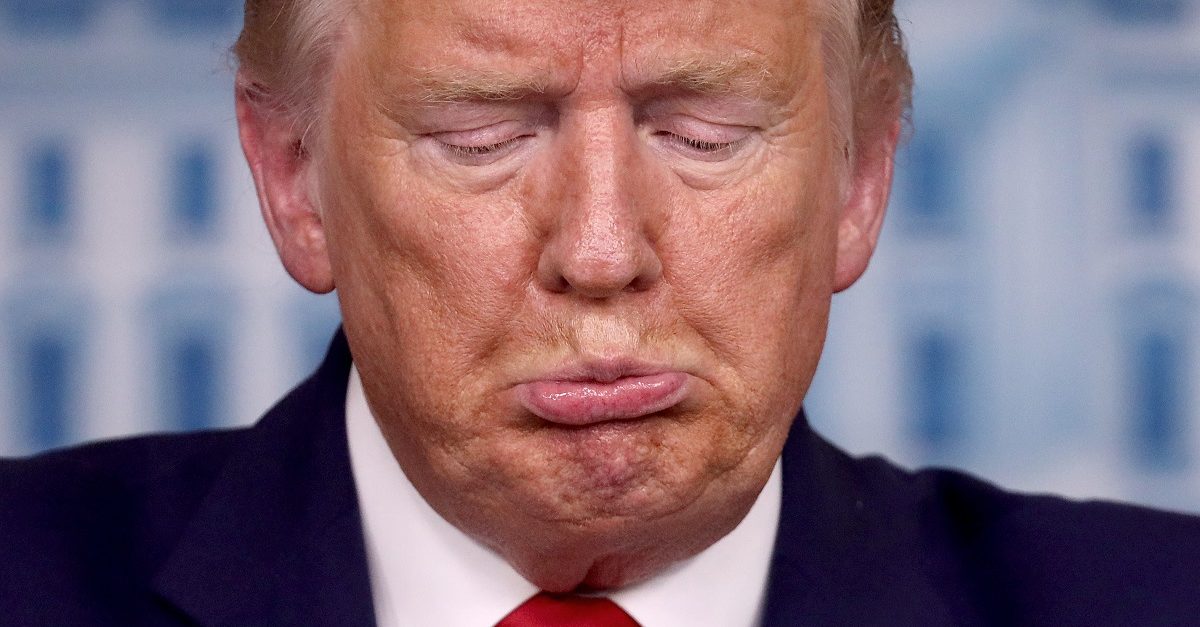
A federal judge in Washington, D.C. on Monday said that President Donald Trump’s public claims that top officials at Department of Justice engaged in a “cover up” cannot be used in court to show he was relying on any actual knowledge or facts gleaned from his position as head of the executive branch.
In a brief three-page opinion, U.S. District Judge Amit Mehta – an appointee of then-President Barack Obama – rejected a request to lift further redactions from 391-pages of the Carter Page FISA warrant application, released via a Freedom of Information Act (FOIA) request.
Following the release of the documents, Trump claimed that portions of the documents were kept from the public “to cover up misconduct” by intelligence officials in his administration in a series of tweets.
“Congratulations to @JudicialWatch and @TomFitton on being successful in getting the Carter Page FISA documents. As usual they are ridiculously heavily redacted but confirm with little doubt that the Department of ‘Justice’ and FBI misled the courts. Witch Hunt Rigged, a Scam!” he tweeted on July 22, 2018.
The following day Trump wrote, “It was classified to cover up misconduct by the FBI and the Justice Department in misleading the Court by using this Dossier in a dishonest way to gain a warrant to target the Trump Team. This is a Clinton Campaign document. It was a fraud and a hoax designed to target Trump….”
Government accountability watchdog group The James Madison Project challenged the redactions to the released FISA warrant, arguing that Trump’s statements came directly from “the highest governmental authority” which “cast[s] doubt on the good faith basis for the redactions and withholdings made by the Government.”
Judge Mehta reasoned, citing Baker & Hostetler LLP v. U.S. Dep’t of Commerce, 473 F.3d 312, 318 (D.C. Cir. 2006), that Trump’s tweets “amount to little more than a mere assertion of bad faith,” and do not substantiate “any personal knowledge on the part of the President with respect to the actual withholdings and the exemptions invoked [by the DOJ].”
“The President’s statement that the disclosed records are ‘ridiculously heavily redacted’ does not undermine the validity of the declarants’ invocation of Exemptions 1 and 3,” Mehta wrote. “And his insistence that the records were ‘classified to cover up government misconduct’ is unsupported and, without more, cannot overcome the national security justifications put forward in the detailed affidavits submitted by [the DOJ].”
National security attorneys Mark Zaid and Bradley P. Moss, executive director and deputy executive director respectively of The James Madison Project, said that the decision essentially confirms that the president’s tweets carry no weight with federal judges.
“It is slightly sad and depressing that in the midst of this current public health crisis another federal judge has concluded the president’s remarks are no more authoritative nor legally relevant on issues of national security redactions than the common heckler at a Cubs game,” Moss wrote in an email to Law&Crime.
Zaid, who was also a member of the legal team that represented the Ukraine whistleblower, weighed in on Twitter.
“Words of a President should mean something. President Trump has ensured that they do not, at least not to federal judges,” he said.
Anti-Trump lawyer and former Trump voter George Conway said the decision adds to “a whole body of federal judicial caselaw standing, in essence, for the proposition that the president is a bozo whose word can’t be taken for anything.”
See Judge Mehta’s three-page order below:
Order on Motion for Reconsi… by Law&Crime on Scribd
[Photo by Win McNamee/Getty Images.]
Have a tip we should know? [email protected]